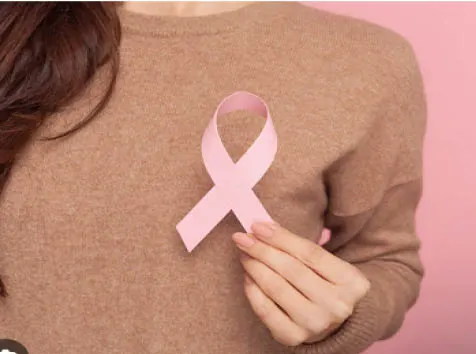A United States-Taiwanese collaboration has developed a portable biosensor that might potentially save lives by enabling quick, inexpensive, and accurate breast cancer screening, the Jerusalem Post reported.
The research titled “High-sensitivity saliva-based biosensors for the detection of breast cancer biomarkers (HER2 and CA15-3)” was jointly carried out by the University of Florida and the National Yang-Ming Chiao Tung University in Taiwan and was published in the Journal of Vacuum Science & Technology B.
Their study revealed promising outcomes from a portable breast cancer screening tool that may identify indicators for the disease from a small saliva sample.
Their biosensor concept makes use of paper test strips that have been specifically treated with antibodies that interact with the components of the targeted cancer biomarkers, as well as the Arduino open-source software platform. Breast cancer is the most frequently detected cancer globally, with over 2.3 million new cases and 685,000 deaths per year.
It is anticipated that the effect of breast cancer will worsen in the future with estimates putting the number of new cases at over three million and the number of fatalities at one million by 2040.
After putting a saliva sample on the strip, the biosensor device’s electrical contact sites receive electrical pulses. These pulses cause the biomarkers to bind to the antibodies and change the charge and capacitance of the electrode.
As a result, there is a shift in the output signal that may be analysed to determine the amount of biomarkers present digitally.
When compared to other designs, this design is revolutionary. Test results for mammogrammes, ultrasounds, and MRIs can take days or weeks to receive, are expensive, and require huge, specialised equipment.
Whereas, the biosensor requires just a drop of saliva and can provide accurate test results even if the concentration of the cancer biomarker in the sample is only one quadrillionth of a gramme, or one femtogramme, per millilitre. Breast cancer is a kind of cancer that begins as a growth of cells in the breast tissue.
After skin cancer, breast cancer is the most common cancer diagnosed in women in the United States. But breast cancer doesn’t just happen in women. Everyone is born with some breast tissue, so anyone can get breast cancer.
Breast cancer survival rates have been increasing. And the number of people dying of breast cancer is steadily going down. Much of this is due to the widespread support for breast cancer awareness and funding for research.










